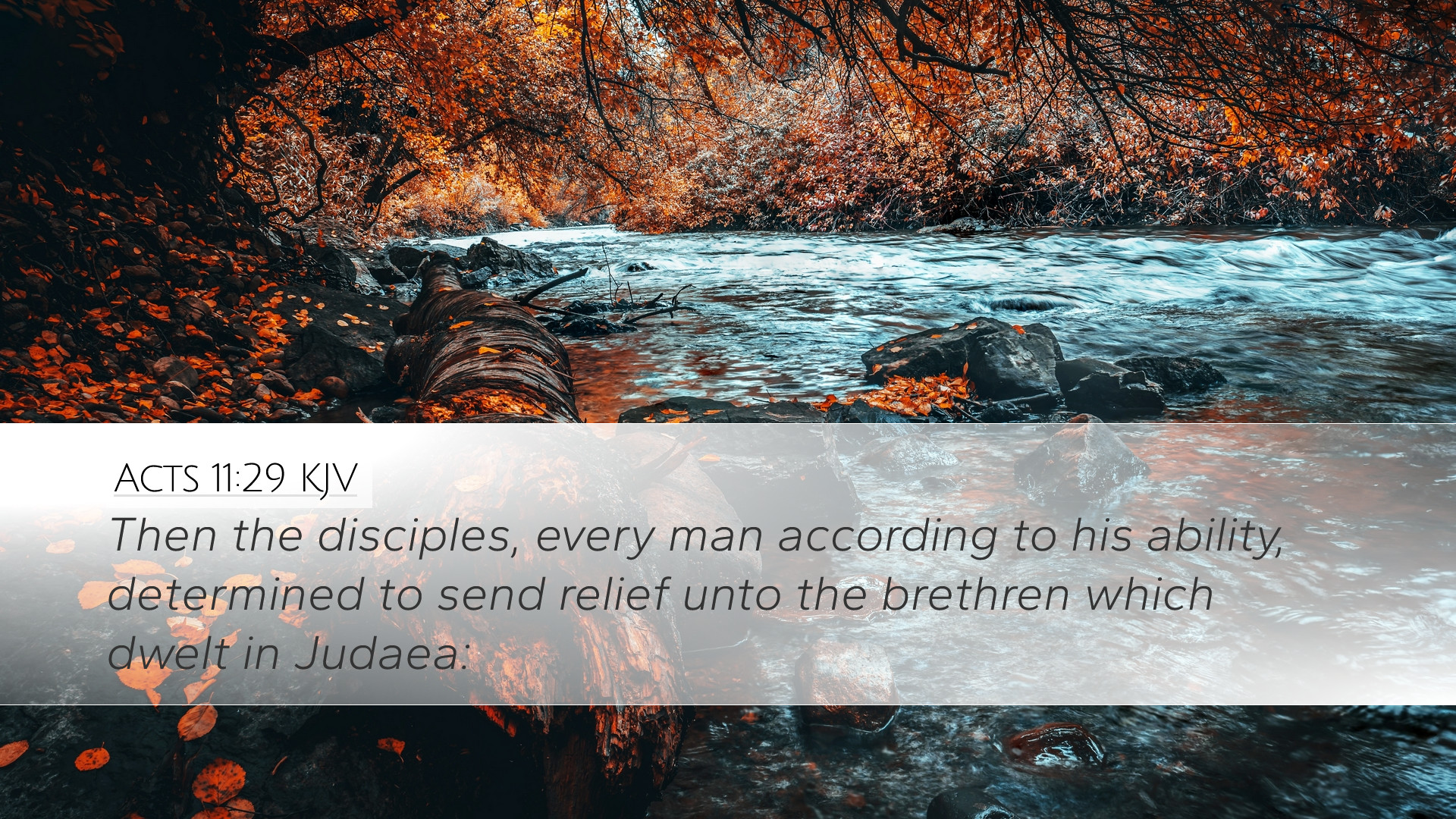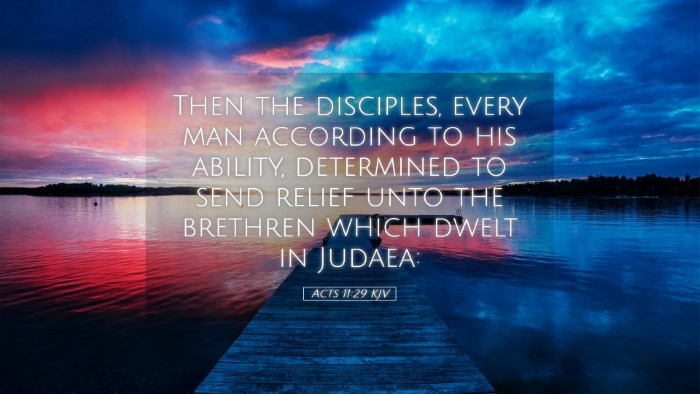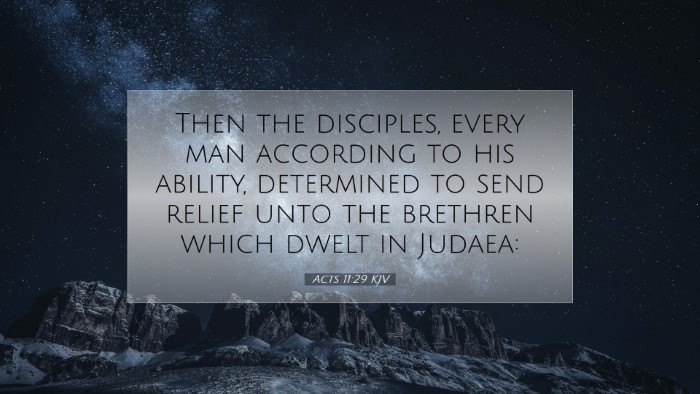Commentary on Acts 11:29
Acts 11:29 states: "Then the disciples, every man according to his ability, determined to send relief unto the brethren which dwelt in Judaea." This verse provides a profound insight into the early Christian community's response to a dire need and reflects the principles of charity, unity, and responsibility within the Body of Christ.
Context and Background
The context of Acts 11 highlights an early instance of the church's response to external hardship. The famine prophesied by Agabus (Acts 11:28) prompted the disciples to act with compassion towards their brethren in Judaea, illustrating the interconnectedness of the Christian community across geographical boundaries.
The Spirit of Generosity
This verse emphasizes the spirit of generosity that characterized the early church. Matthew Henry notes that the actions of the disciples were motivated by a sense of collective responsibility. They did not wait for a wealthy benefactor but rather took it upon themselves to provide assistance, demonstrating a practical application of their faith.
Adam Clarke elaborates on the idea that giving should come from a place of personal ability and conviction. Each disciple contributed "according to his ability," showcasing the importance of personal sacrifice and the various capacities in which individuals can serve the church and the community.
The Role of Each Believer
Each disciple's contribution, regardless of the amount, emphasizes that every gift is valuable in the sight of God. Albert Barnes stresses that the measure of our giving should not be merely in quantity but in proportion to what we possess and our willingness to give. This introduces the concept of equality in giving, where every effort is celebrated.
Unity and Solidarity
The act of sending relief was not just a matter of charity; it was an expression of unity within the Body of Christ. The needs of the church in Judaea became the concern of Christians elsewhere, highlighting the ecclesiastical solidarity that transcends local boundaries. Henry contemplates how this communal response reflects the biblical principle found in 1 Corinthians 12:26: "And whether one member suffer, all the members suffer with it."
Lessons for Today
As pastors, students, and theologians examine this verse, several lessons emerge that are pertinent for today’s church:
- Responsibility to the Needy: The church is called to be the hands and feet of Christ, providing for those in need.
- Individual Participation: Each member has a role—though contributions may vary, all are important to the overall mission.
- Response to Prophetic Insight: The disciples acted in accordance with a prophetic message, highlighting the importance of listening to God’s voice as revealed through the Holy Spirit.
- Joyful Giving: Giving should be seen as a joyful act, a reflection of the love and grace we've received from Christ.
Theological Implications
The decision of the disciples to send aid underscores the biblical idea of stewardship. According to Clarke, stewardship encompasses all the gifts and resources provided by God. The early church modelled how application of these resources should directly address the needs of others.
Barnes reminds us that the act of giving is not just a service rendered, but a means through which faith is expressed and strengthened. Generosity in a Christian context becomes a testimony of God’s provision and love.
Concluding Thoughts
Acts 11:29 serves as a timeless reminder of the unity and compassion that should define the Christian community. As believers respond to needs with a heart of generosity and according to their ability, they fulfill the call to love and serve one another. The collective involvement of each disciple not only reinforces the strength of the church but also glorifies God as the ultimate provider.
The insights presented by Matthew Henry, Adam Clarke, and Albert Barnes contribute richly to our understanding of this significant passage, urging us to reflect on how attitudes toward generosity and community responsibility play out in our churches today.


